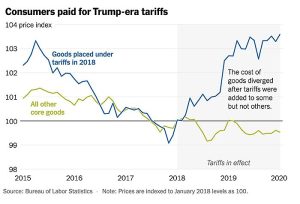Healthcare Reform: Trump’s Bold Move to Voucherize Subsidies

By Sally Pipes
Thursday, 20 November 2025 04:19 PM EST
Current | Bio | Archive
In a social media post earlier this month, President Trump laid out his own alternative to the enhanced Obamacare subsidies that fueled the record-breaking 43-day government shutdown.
“I am recommending to Senate Republicans that the Hundreds of Billions of Dollars currently being sent to money sucking Insurance Companies in order to save the bad Healthcare provided by ObamaCare, BE SENT DIRECTLY TO THE PEOPLE SO THAT THEY CAN PURCHASE THEIR OWN, MUCH BETTER, HEALTHCARE, and have money left over.”
Colorful language aside, the idea is worth considering.
Individual Americans deserve more control over how their healthcare dollars are spent. Injecting more consumerism into the health insurance market can help restore efficiency — and sanity — to our healthcare system.
It’s hard to argue with Trump’s basic critique of the generous COVID-19-era Obamacare subsidies. If extended beyond their scheduled expiration at the end of this year, these subsidies will cost taxpayers $350 billion over the next decade, according to the Congressional Budget Office (CBO).
And as the president notes, that money doesn’t go to patients — it goes directly into the pockets of giant insurance companies.
Trump’s proposed solution to this mess is also compelling — at least in principle. If the government is going to spend enormous sums subsidizing health insurance, much better to give those funds to individuals and let them use the money to buy coverage of their choosing — or even pay for care directly.
An army of consumers with control over healthcare dollars is a recipe for healthier competition among insurers — and higher-quality, better-value coverage in the long run.
Why not look at voucherizing other parts of the health insurance system?
The government currently spends over $1 trillion each year on the healthcare entitlement for seniors. That amount to nearly $15,000 per Medicare beneficiary. Yet instead of giving those funds directly to patients — and allowing them to purchase private coverage — the federal government funds a sprawling health insurance bureaucracy that employs thousands of federal workers.
Transitioning the program to a system of vouchers, in which every enrollee is allotted a set amount of money to pay for healthcare each year, could lower costs and improve the quality of coverage for seniors.
Or let’s extend Trump’s idea for the individual market further. Why not encourage employers to give their employees untaxed dollars to purchase health insurance that suits their unique needs on the individual market, rather than buying a one-size-fits-all plan for everyone in their employee population?
President Trump created a vehicle for voucherizing employer-sponsored coverage — the individual coverage health reimbursement arrangement, or ICHRA — in his first term. These accounts can give employers more control over their own healthcare costs — and can encourage employees to spend their healthcare dollars more wisely.
The upshot is more competition within the healthcare market — and downward pressure on prices over time.
The Trump administration has yet to build out a legislative vehicle based on the president’s social media post. But Sen. Bill Cassidy, R-La., has already floated one approach. The Senate HELP Committee chairman has proposed to redirect enhanced subsidy money into individual Flexible Spending Accounts, or FSAs. Patients would have 15 months to use those funds to purchase health coverage, or else forfeit the money back to the government.
For starters, they should not commit to extending Obamacare’s enhanced subsidies permanently. Second, they must pair any form of federal health insurance voucher with reforms that relax Obamacare’s insurance market regulations. Or, make lower-cost short-term health plans, which are not subject to those regulations, more widely available.
Indeed, unless the GOP takes steps to deregulate the health insurance market and make a wider array of affordable plan options available to patients, transitioning to direct subsidy payments won’t create a healthy coverage market. It could even precipitate a “death spiral,” in which patients flee the exchanges, leaving no one but high-cost, high risk patients in the Obamacare risk pools.
Spending less on corporate welfare for insurers, and more helping patients through direct financial assistance, is precisely the right idea — one whose moment may have finally arrived.
Sally C. Pipes is President, CEO, and Thomas W. Smith Fellow in Health Care Policy at the Pacific Research Institute. Her latest book is “The World’s Medicine Chest: How America Achieved Pharmaceutical Supremacy — and How to Keep It.” Follow her on X @sallypipe. Read more of Sally Pipes’ reports — here.
© 2025 Newsmax. All rights reserved.
Receive breaking news and original analysis – sent right to your inbox.
Privacy: We never share your email address.
United States
Afghanistan
Albania
Algeria
Andorra
Angola
Anguilla
Antigua And Barbuda
Argentina
Armenia
Aruba
Ascension Island
Australia
Austria
Azerbaijan
Azores Islands
Bahamas
Bahrain
Bangladesh
Barbados
Belarus
Belgium
Belize
Benin
Bermuda
Bhutan
Bolivia
Bophuthatswana
Bosnia & Herzegovina
Botswana
Brazil
British Ind.Ocean Te
British Virgin Isles
Brunei Darussalam
Bulgaria
Burkina Faso
Burma
Burundi
Cambodia
Cameroon
Canada
Cape Verde
Cayman Islands
Central African Repu
Chad
Channel Islands
Chile
Colombia
Comoros
Comw Indep Stes
Congo
Cook Islands
Costa Rica
Croatia
Cuba
Cyprus
Czech Republic
Denmark
Djibouti
Dominica
Dominican Republic
East Asia
East Timor
Ecuador
Egypt
El Salvador
Equatorial Guinea
Eritrea
Estonia
Ethiopia
Falkland Islands
Faroe Islands
Fiji
Finland
Fr West Indies
France
French Guyana
French Polynesia
Gabon
Gambia
Gaza
Georgia
Germany
Ghana
Gibraltar
Greece
Greenland
Grenada
Guadeloupe
Guam
Guatemala
Guinea
Guinea Bissau
Guyana
Haiti
Honduras
Hong Kong
Hungary
Iceland
India
Indonesia
Iran
Iraq
Ireland
Israel
Italy
Ivory Coast
Jamaica
Japan
Jordan
Kazakhstan
Kenya
Kiribati
Korea, South
Kosovo
Kuwait
Kyrgyzstan
Laos
Latvia
Lebanon
Leeward Isl
Lesotho
Liberia
Libya(N Arab Jamahi)
Liechtenstein
Lithuania
Luxembourg
Macao
Macedonia
Madagascar
Malawi
Malaysia
Maldives
Mali
Malta
Marshall Islands
Martinique
Mauritania
Mauritius
Mayotte
Mexico
Micronesia
Moldavia
Monaco
Mongolia
Montenegro
Montserrat
Morocco
Mozambique
Myanmar
Namibia
Nauru
Nepal
Netherlands
Netherlands Antilles
New Caledonia
New Herbrides
New Zealand
Nicaragua
Niger
Nigeria
Niue
Norfolk Island
North Korea
Northen Mariana Isl
Norway
Oman
Pakistan
Palau
Palestine
Panama
Papua New Guinea
Paraguay
Peoples Rep Of China
Peru
Philippines
Pitcairn Island
Poland
Portugal
Puerto Rico
Qatar
Reunion
Romania
Russian Federation
Rwanda
Saint Helena
Saint Kitts And Nevi
Saint Lucia
Saint Tome And Princ
Samoa
San Marino
Saudi Arabia
Senegal
Serbia
Seychelles
Sierra Leone
Singapore
Slovakia
Slovenia
Solomon Islands
Somalia
South Africa
Spain
Sri Lanka
St Vincent/Grenadine
Sudan
Suriname
Swaziland
Sweden
Switzerland
Syria
Taiwan
Tajikistan
Tanzania
Tasmania
Thailand
Timor-Leste
Togo
Tonga
Trinidad And Tobago
Tunisia
Turkey
Turkmenistan
Turks And Caicos
Tuvalu
Uganda
Ukraine
United Arab Emirates
United Kingdom
Uruguay
Uzbekistan
Vanuatu
Vatican/Holy See
Venezuela
Vietnam
Western Sahara
Yemen
Zambia
Zimbabwe
Privacy: We never share your email.
Newsmax, Moneynews, Newsmax Health, and Independent. American. are registered trademarks of Newsmax Media, Inc. Newsmax TV, and Newsmax World are trademark of Newsmax Media, Inc.
NEWSMAX.COM
America’s News Page
© 2025 Newsmax Media, Inc.
All Rights Reserved







